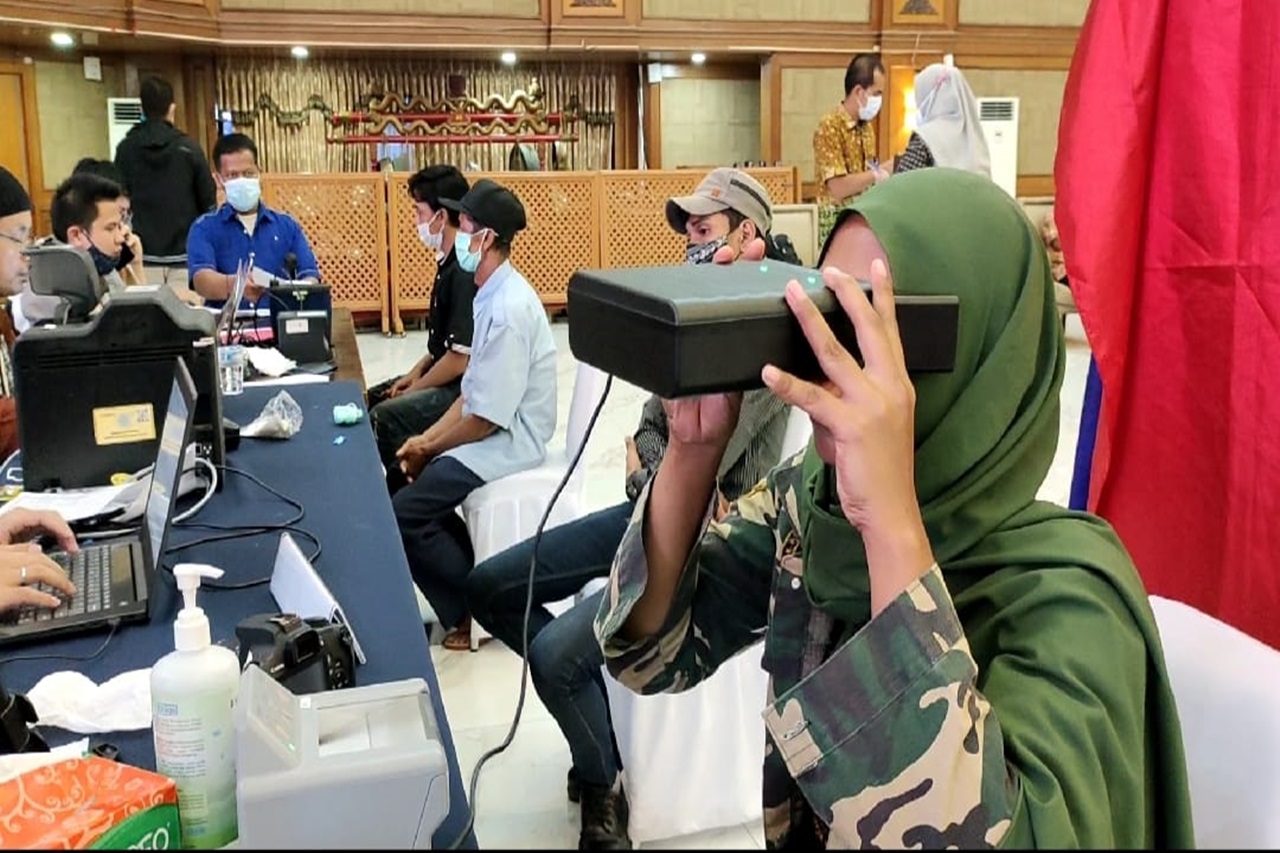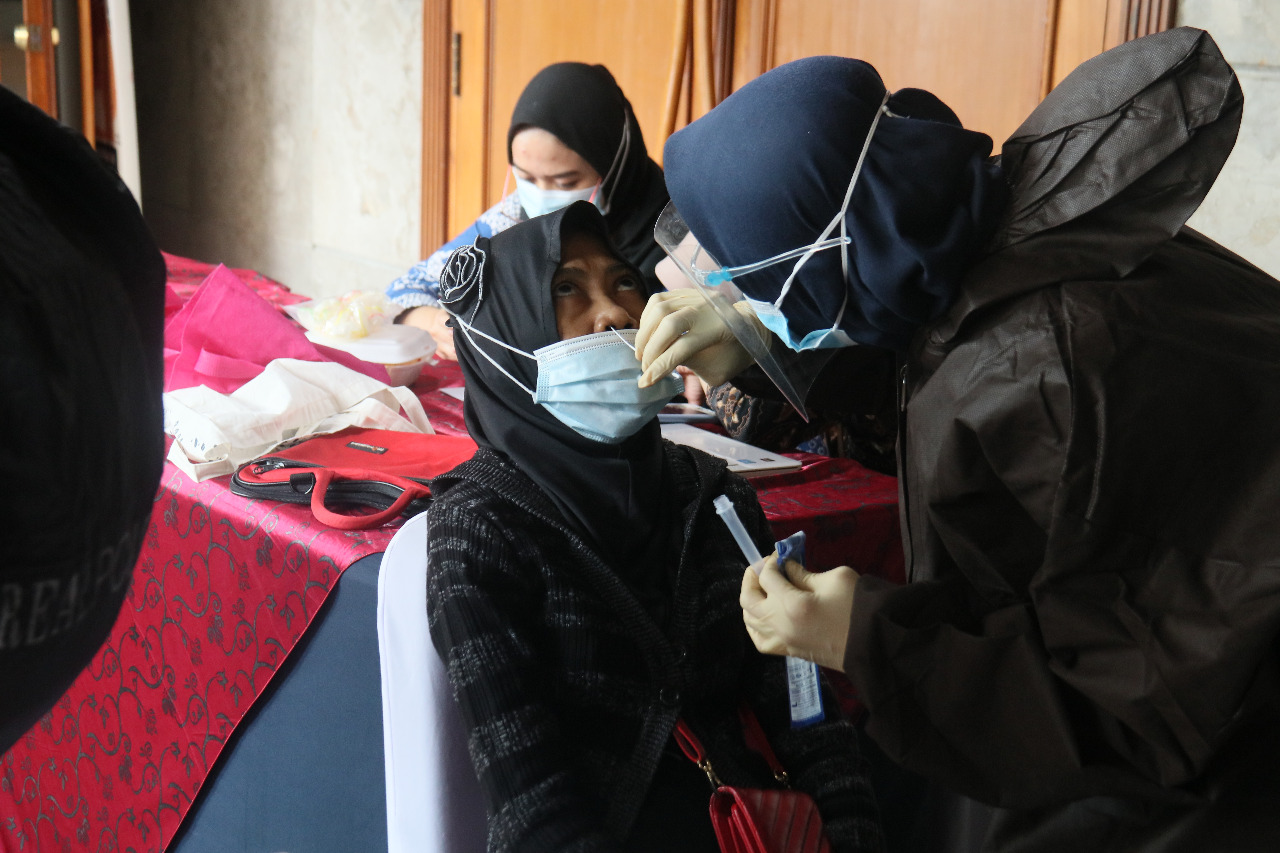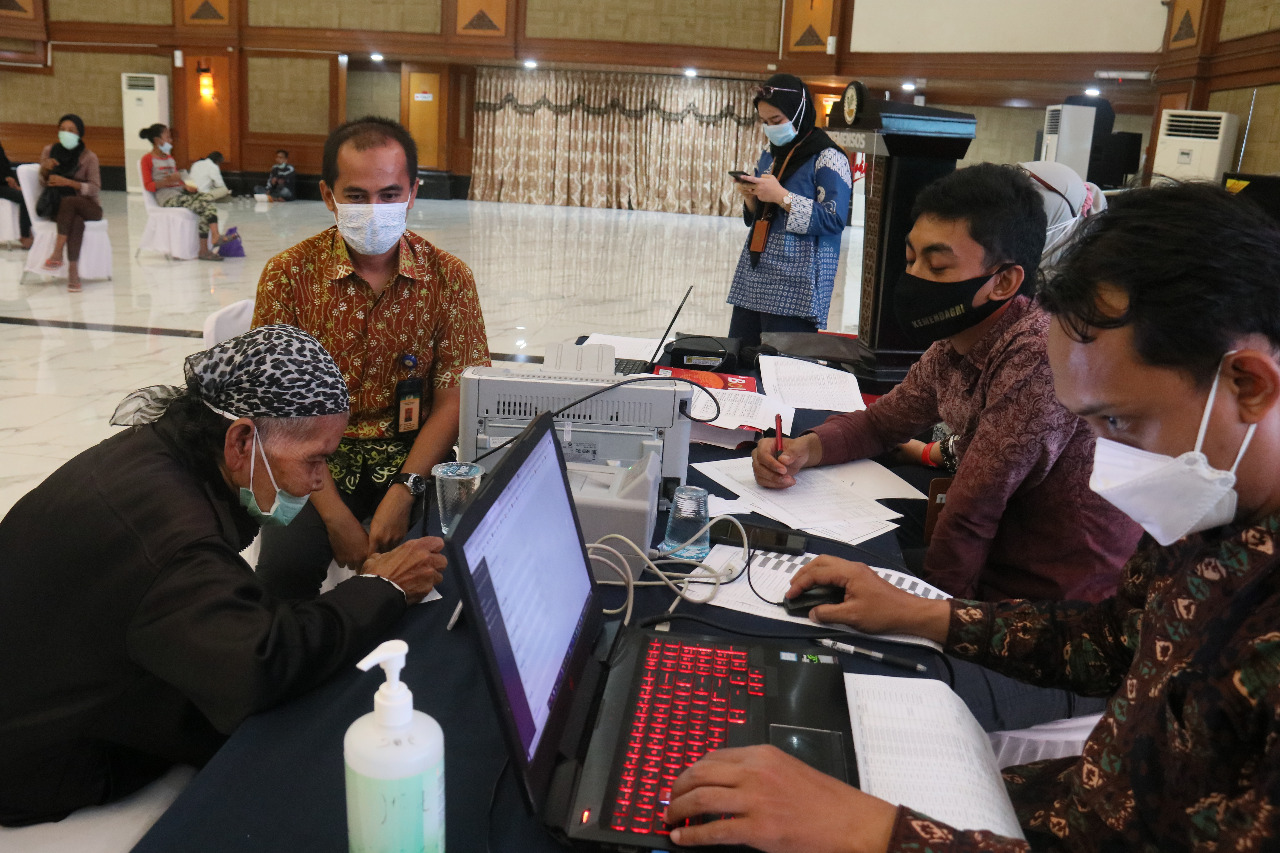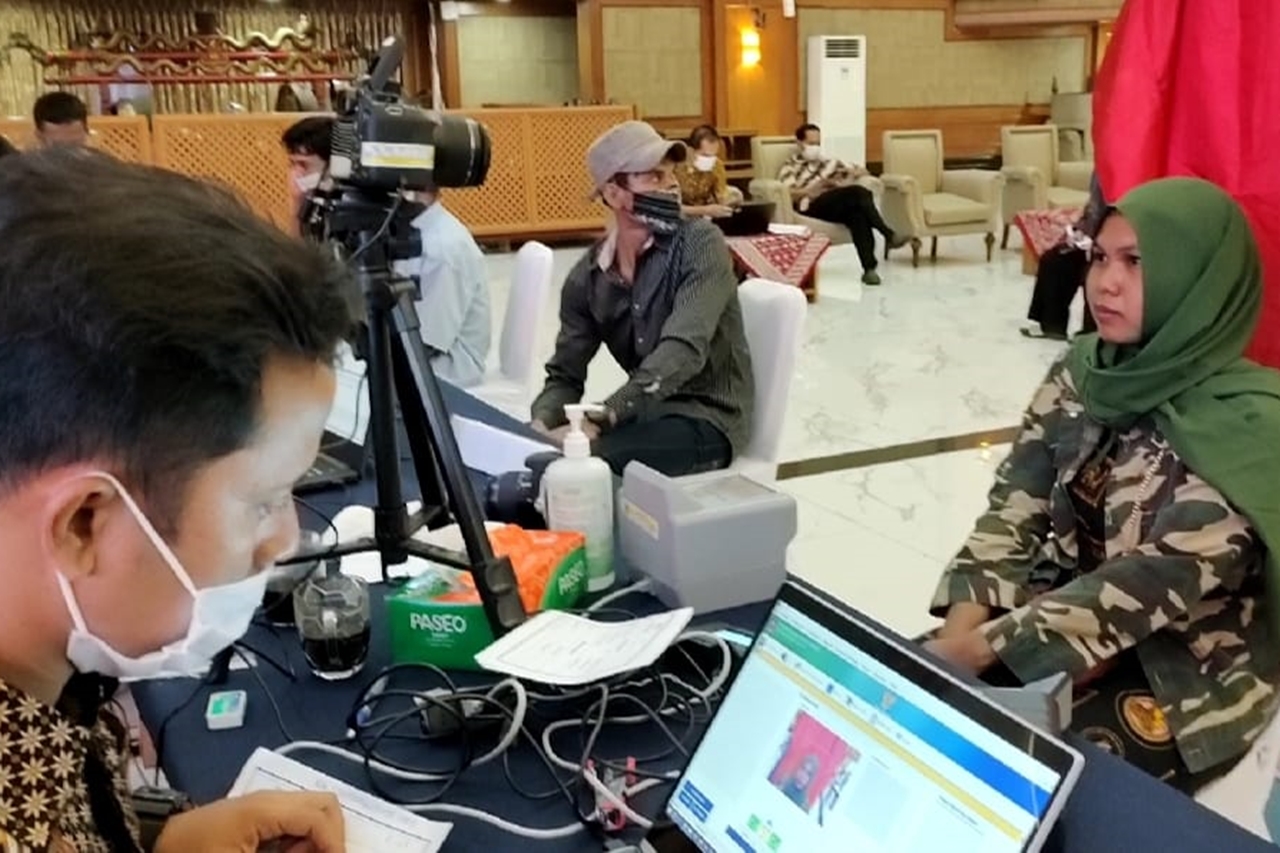Writer :
Humas Ditjen Rehabilitasi Sosial
Editor :
Annisa YH
Translator :
Karlina Irsalyana
JAKARTA (9 February 2021) - The Minister of
Social Affairs, Tri Rismaharini, reviewed the process of recording population
data for marginalized/neglected residents which was again being held at the
Aneka Bhakti Building of the Ministry of Social Affairs, Jakarta.
A total of 56
marginalized/neglected residents from the Pangudi Luhur Bekasi Training Center,
Swara Peduli Social Welfare Institution (LKS) and LKS Sekar were given access
to a residency identity in the form of a National Identity Card (KTP).
Since the Minister Tri
Rismaharini visited several locations where marginalized/abandoned residents
live, such as under the Pegangsaan bridge, under the Gedong Panjang Penjaringan
toll road, to scavenger settlements in the Cilincing Tanjung Priok area, there
have been several things that residents have complained about, one of which is
the difficulty of getting access to social assistance from the government.
This condition is
suspected to be due to the absence of a population identity belonging to
displaced people. It is difficult for them to obtain a residential identity
because most of the marginalized / abandoned residents do not have permanent /
unregistered residences. Evidently, some of the abandoned residents that Risma
met lived under the bridge, while some slept on the side of the road.
In collaboration with
the Directorate General of Population and Civil Registration of the Ministry of
Home Affairs, the Ministry of Social Affairs provides access for displaced
people to obtain ID cards. This is done so that their data can be included in
the Integrated Social Welfare Data (DTKS), thus making it easier for
marginalized/neglected residents to access the Ministry of Social Affairs
program assistance such as from the ATENSI, PKH, BST, or assistance from other
Ministry / Institution programs such as KIS, KKS, or KIP.
The Secretary of the
Directorate General of Social Rehabilitation, Idit Supriadi Priatna
representing the Director-General of Social Rehabilitation, Harry Hikmat said
that the Ministry of Social Affairs will continue to comb the marginalized to
be able to access population data recording services. This is their right and
the Ministry of Social Affairs together with LKS to oversee the process of
recording population data to completion.
"In the future,
when they already have ID cards, it will be easier for them to get assistance
from the government, not only from the Ministry of Social Affairs but from
other ministries/institutions that require them to have an ID," he
added.
This data recording
model for marginalized/neglected people will also be applied by the Social
Rehabilitation Centers belonging to the Ministry of Social Affairs in the
regions. "Social Rehabilitation Centers in the regions also have partners
such as LKS. Balai will coordinate with LKS, the Social Service, and the local Population
and Civil Registration (Dukcapil) Service to record data for marginalized /
displaced people in the regions," said Idit.
The Director-General of
Population and Civil Registration of the Ministry of Home Affairs, Zudan Arif
Fakrulloh, revealed that granting population identity is the duty of the state.
"The Ministry of
Social Affairs and the Ministry of Home Affairs completed the recording for
marginalized / abandoned residents. The method is to pick up the ball, we go to
it, if it is found, we collect it in one place and we serve it for data
recording," he said.
Zudan added that the
current development of the DTKS was good. There was an increase in the
compatibility between the DTKS and the Dukcapil data which was originally 83%
in 2020, now it has reached 90.3%. "We are doing continuous validation and
verification based on NIK. Currently, the compatibility of DTKS with Dukcapil
data has reached 90.3%," he said.
The recording process
runs in an orderly manner by implementing strict health protocols. Marginalized/displaced people who arrive at the recording location first carry out rapid
antigen. After being stated negative, they can register.
After registering,
residents are asked to enter the waiting room to wait their turn to submit the
requirements for recording their resident identity.
Several service desks are
available, residents are called to the first table, namely the Biometrics
table, a tracking process to find out whether they have previously done a
recording.
After it is known that
the resident has done the recording, the resident can go directly to the
printing table, which is to print the KTP for which the data is available.
For those whose data
cannot be found, it is necessary to record ID cards by inputting fingerprints,
iris data, and self-portrait. After that, the KTP is ready to be printed.
Nina Laksanawati (25
years), one of the marginalized / abandoned residents who has worked as a
scavenger since she was a child, told that after her mother died, her father
invited her to move to Jakarta. Some time in Jakarta, his father's important
documents were lost so that he could not arrange for a KTP.
Nina is grateful that
she already has a KTP. "I am relieved that I can find a more decent job because now it is difficult to find work without an ID card. I am tired of
being a scavenger," said Nina.
He hopes that by having
a KTP, he can find a more decent job so he can help his family. Moreover, at
this time he still has a younger brother who requires education fees.
The population data
recording activity was also attended by the Director-General of Population and
Civil Registration along with the ranks, the Secretariat team of the
Directorate General of Social Rehabilitation and the team of the Directorate of
Social Rehabilitation for Persons with Social Deviance Issues and Trafficking
Victims of the Ministry of Social Affairs.
Share :
 English
English
 Bahasa
Bahasa




